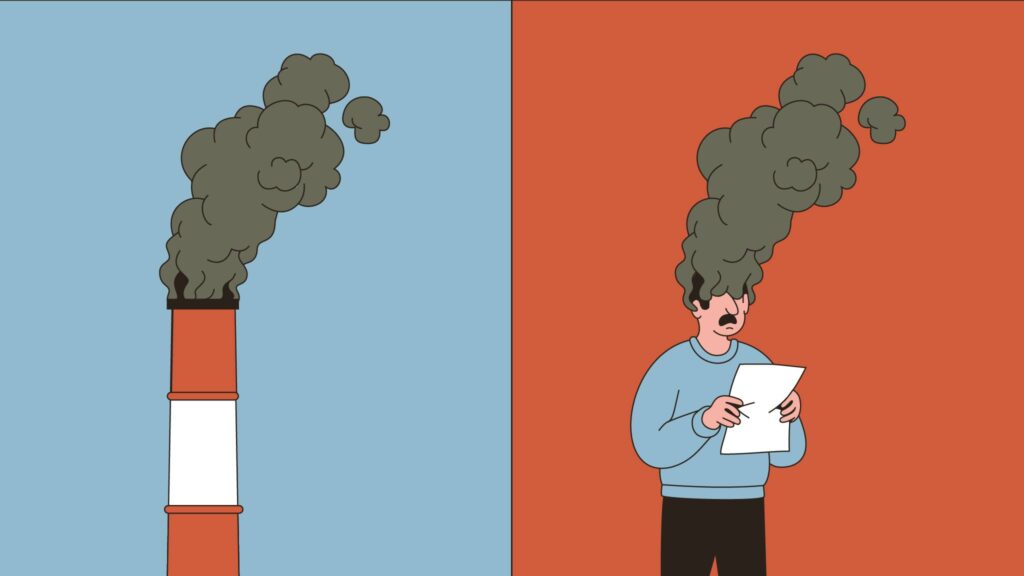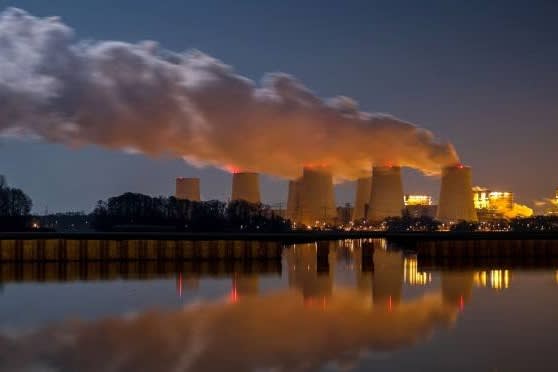Austria seeks to combine carbon tax and tax cuts for the middle class

Austria’s government has outlined a plan to impose new taxes on carbon emissions that will, in turn, fund tax cuts for middle earners in a move Chancellor Sebastian Kurz hopes will breathe life into his coalition government’s green-conservative agenda.
From next July, Austrians would be taxed €30 per tonne of carbon, rising to €55 by 2025, Kurz said. The measure will initially translate to an extra cost of 10 cents on the litre at petrol stations and also €130 more for the average Austrian household’s annual heating costs.
Receipts from the rise will be passed on in the form of tax cuts worth an estimated €18bn by 2025, the Austrian chancellery said. From next July the income tax rate will drop from 35 to 30 per cent for those earning between €18,000 and €31,000. A year later it will drop from 42 to 40 per cent for those earning between €31,000 and €60,000.
“We’ve said we want to give relief to all those who work, in particular low- and middle-income workers, families and pensioners who have worked their whole lives,” Kurz said.
The twin measures highlight the delicate balancing act of EU governments that are striving to shift consumers away from CO2-intensive spending, while avoiding fuel protests such as the gilets jaunes that rocked France for months in 2018. Austria’s chancellery officials said Kurz was particularly wary of triggering such a backlash in Austria as frustrations over pandemic-related restrictions have mounted.
Austria joins other EU states in imposing a cost on CO2 emissions. German legislation that came into force this year set a price of €25 per tonne, rising to €55 by 2025. France has a carbon tax of €45 a tonne, and the Netherlands €30.
The EU-wide Emissions Trading Scheme (ETS) applies a carbon price for big industrial polluters and power generators by allocating tradeable allowances. The price for these allowances reached more than €64 last week. One allowance gives the holder the right to emit one tonne of CO2.
“Less dirt in the air, more money in the exchequer,” declared vice-chancellor Werner Kogler, leader of Austria’s Green party, who announced the measures alongside Kurz on Sunday.
Austria’s opposition parties, however, were universal in their criticism of the proposals.
The social democrats argued that the package favoured the interests of big business: under the plan, some large emitters will receive exemptions. The effect of inflation and fiscal drag will wipe out the gains for low- and middle-income taxpayers within just two years, said their party’s finance spokesperson Jan Krainer.
Herbert Kickl, leader of the rightwing populist Freedom party, said the tax reform was “a pure sham . . . a punishment package for Austrian taxpayers”.
Austrian climate activists meanwhile said the carbon tax was nowhere near enough.
A prominent study in the scientific journal Nature estimates that a price of €120 per tonne is needed by 2030 to decarbonise economies by 2050, in line with EU goals.
The tax deal follows months of tense negotiations between Kurz’s conservative People’s party and the Greens that came down to the wire, with the federal budget due to be presented to parliament next week. Kurz was forced to cancel a trip to Spain this weekend in order to finalise terms with his coalition partners.
For Kurz, the deal is politically sensitive. Poll ratings for his party have slipped over the past 18 months. The party is polling at 35 per cent favourability, down from 44 per cent in May 2020. Last weekend, regional elections saw vaccine sceptics elected in Upper Austria and the Communist party take control of Austria’s second city, Graz.
Additional reporting by Mehreen Khan in Brussels
Climate Capital

Where climate change meets business, markets and politics. Explore the FT’s coverage here.
Are you curious about the FT’s environmental sustainability commitments? Find out more about our science-based targets here